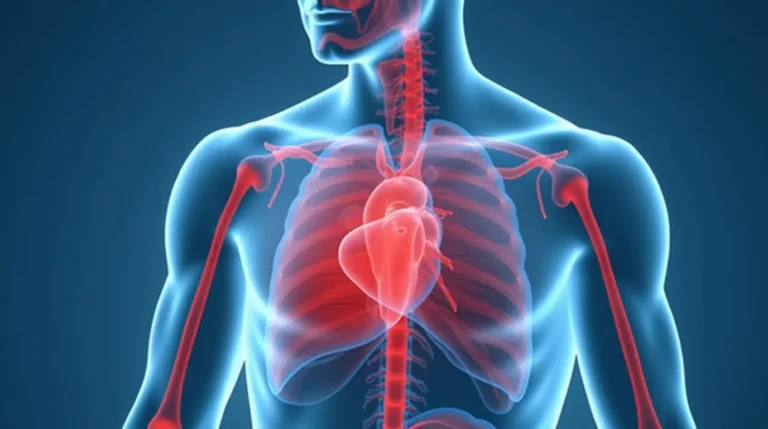We envision a world where everyone has the tools and knowledge to live a balanced, healthy, and fulfilling life. By providing reliable resources, personalized programs, and community support, we aim to be a beacon of hope for those on their health journey.
Table of Contents
Understanding Treatments for Diabetes and Heart Disease1
Diabetes and heart disease represent two of the most significant health challenges faced by populations worldwide. Diabetes, a metabolic disorder characterized by elevated blood sugar levels, affects millions of individuals globally, with the International Diabetes Federation reporting an estimated 537 million adults living with the condition in 2021. This figure is projected to rise sharply, raising concerns regarding the long-term health implications for affected individuals.
Heart disease encompasses a range of cardiovascular disorders, including coronary artery disease, hypertension, and heart failure, among others. According to the World Health Organization, cardiovascular diseases account for an alarming 32% of all global deaths, marking them as a leading cause of mortality. The interrelationship between diabetes and heart disease is critical; individuals with diabetes are significantly more likely to develop cardiovascular complications compared to those without the condition. This association can be attributed to several shared risk factors, including obesity, sedentary lifestyle, and dyslipidemia.
Understanding the connection between these two conditions is essential not just for healthcare providers but also for patients and their families. The presence of diabetes amplifies the risk of heart disease due to its adverse effects on blood vessels and overall cardiovascular health. Consequently, managing diabetes effectively can substantially reduce the risk of heart disease, thus improving patient outcomes. Educating the public about these diseases, their risk factors, and treatment options is paramount in addressing the growing prevalence of both conditions. Comprehensive strategies that encompass lifestyle modifications, medical interventions, and ongoing research into innovative treatments can foster better management of diabetes and heart disease.
Understanding the Types of Diabetes

Diabetes is a complex metabolic disorder characterized by high blood sugar levels resulting from inadequate insulin production or ineffective use of insulin. There are three primary types of diabetes: Type 1, Type 2, and gestational diabetes, each with distinct biological mechanisms, symptoms, and risk factors that can influence cardiovascular health.
Type 1 diabetes, often diagnosed in childhood or adolescence, occurs when the immune system mistakenly attacks and destroys insulin-producing beta cells in the pancreas. This leads to an absolute deficiency of insulin, necessitating lifelong insulin therapy for survival. Symptoms may include excessive thirst, frequent urination, extreme fatigue, and unintended weight loss. Individuals with Type 1 diabetes are at a heightened risk for cardiovascular complications due to chronic hyperglycemia and the resulting damage to blood vessels over time.
On the other hand, Type 2 diabetes is more prevalent and typically develops in adulthood, although it is increasingly seen in younger populations due to rising obesity rates. This type involves insulin resistance, where the body’s cells do not respond effectively to insulin. Over time, the pancreas cannot produce enough insulin to overcome this resistance. Symptoms are often subtle and may include fatigue, blurred vision, and slow-healing sores. The connection between Type 2 diabetes and cardiovascular health is significant, as this condition is associated with an increased risk of heart disease, stroke, and hypertension.
Gestational diabetes occurs during pregnancy when the body is unable to produce enough insulin to meet the increased demands. Although it usually resolves after childbirth, women who experience gestational diabetes are at a higher risk of developing Type 2 diabetes later in life, which in turn poses risks to their cardiovascular health. Understanding these diabetes types, their symptoms, and associated risks is crucial for developing effective prevention and treatment strategies, particularly concerning heart disease.
Current Treatments for Diabetes
As of 2023, the management of diabetes has evolved significantly, with a variety of treatment options available to patients. The cornerstone of diabetes management remains lifestyle changes, which include dietary modifications, regular physical activity, and weight management. These changes not only assist in controlling blood glucose levels but also enhance overall health and reduce the risk of related complications. Nutritional education, focusing on carbohydrate counting and glycemic index, plays a critical role in tailoring an effective meal plan for individuals with diabetes.
In addition to lifestyle adjustments, pharmacological treatments are essential for many patients. Oral medications, such as metformin, sulfonylureas, and SGLT2 inhibitors, have been widely used for managing type 2 diabetes. These medications work through various mechanisms, such as increasing insulin sensitivity, promoting insulin secretion, or reducing glucose reabsorption in the kidneys. Injectable options, particularly glucagon-like peptide-1 (GLP-1) receptor agonists and insulin, are also integral in treatment regimens, especially when oral medications prove insufficient in controlling blood sugar levels.
Technological advancements have further transformed diabetes management. Continuous glucose monitors (CGMs) have become increasingly popular, providing real-time glucose data to patients, which allows for more informed decision-making regarding insulin administration and dietary choices. Furthermore, insulin pumps are gaining traction, enabling precise delivery of insulin throughout the day. These devices not only improve glycemic control but also enhance the quality of life for individuals living with diabetes.
Furthermore, personalized medicine has begun to play a crucial role in diabetes management. By tailoring treatment plans to an individual’s unique genetic makeup, lifestyle factors, and preferences, healthcare providers can optimize therapeutic outcomes. This approach highlights the importance of collaboration between patients and providers in creating a comprehensive and effective management strategy for diabetes.
Current Treatments for Heart Disease

Heart disease remains a leading cause of morbidity and mortality worldwide, necessitating effective treatment strategies tailored to individual patient needs. Contemporary treatment approaches primarily focus on lifestyle modifications, pharmacological interventions, and surgical options. Lifestyle changes, such as adopting a heart-healthy diet, engaging in regular physical activity, and quitting smoking, serve as foundational elements in mitigating the risk of heart disease, improving overall cardiovascular health.
In terms of medication, a variety of drugs play pivotal roles in the management of heart disease. Statins, which are widely prescribed, help lower cholesterol levels, thereby reducing the risk of atherosclerosis and subsequent cardiovascular events. Additionally, anticoagulants are critical for preventing blood clots that can lead to heart attacks and strokes. These medications require careful monitoring due to potential side effects and interactions with other treatments. Other heart-related medications include beta-blockers and ACE inhibitors, which can aid in lowering blood pressure and improving heart function.
Surgical interventions are reserved for specific cases where non-invasive treatments prove insufficient. Angioplasty, a minimally invasive procedure, involves the insertion of a balloon to widen narrowed arteries, boosting blood flow to the heart. In more severe instances, bypass surgery may be indicated, creating alternative pathways for blood to circulate around blocked arteries. Both surgical options have shown effectiveness in restoring cardiac health, particularly when integrated into a broader management strategy.
To enhance treatment outcomes, early detection and management of heart disease are crucial. Regular screenings and monitoring help identify risk factors before they escalate into severe conditions. Given the multifaceted nature of heart disease, a personalized approach involving patients, healthcare professionals, and lifestyle modifications can significantly impact the effectiveness of these treatments, leading to improved overall health and quality of life.
Emerging Therapies in Diabetes Management
The landscape of diabetes management is continuously evolving, driven by groundbreaking research and technological advancements aimed at improving patient outcomes. One of the most significant developments in diabetes treatment is the emergence of new medications designed to target specific pathways involved in glucose regulation. These innovative therapies, including SGLT2 inhibitors and GLP-1 receptor agonists, have shown promise not only in controlling blood sugar levels but also in reducing cardiovascular risks associated with diabetes. Such treatments are considered game changers, shifting the paradigm of diabetes care towards a more individualized approach.
In addition to pharmacological advancements, the role of technology in diabetes management is becoming increasingly prominent. Wearable devices, such as continuous glucose monitors (CGMs) and insulin delivery systems, have revolutionized the way individuals manage their conditions. These devices provide real-time data that help in making informed decisions about diet, exercise, and insulin administration. The integration of mobile applications further supports this process, allowing for greater engagement and self-management by patients. The potential application of artificial intelligence in these platforms is also being explored to offer tailored recommendations for optimal health outcomes.
Another promising avenue in diabetes treatment is gene therapy, which is currently being researched for its capability to address the underlying causes of the disease. Techniques such as CRISPR gene editing could pave the way for correcting genetic mutations responsible for diabetes, offering hope for long-term remission or even a cure. Clinical trials are actively assessing the efficacy and safety of these emerging therapies, providing invaluable data that may guide future treatment protocols. As these innovative therapies continue to evolve, they hold the potential to transform the diabetes management landscape, ultimately leading to enhanced quality of life for patients worldwide.
Emerging Therapies in Heart Disease Management
Heart disease remains a leading cause of mortality globally, prompting ongoing research to identify innovative therapies aimed at enhancing patient outcomes. Recent advancements have emerged in several areas, including novel pharmacological interventions, regenerative medicine techniques, and improvements in minimally invasive surgical methods. These developments signify a transformative period in heart disease management, providing patients with more effective treatment options.
One of the significant breakthroughs in pharmacotherapy involves the introduction of novel drugs designed to target specific molecular pathways associated with heart disease. These therapies aim to address underlying mechanisms rather than merely alleviating symptoms. For instance, sodium-glucose co-transporter-2 (SGLT2) inhibitors, originally developed for diabetes management, have exhibited cardioprotective benefits, resulting in a dual advantage for patients with concurrent diabetes and heart issues. Additionally, novel anticoagulants and anti-inflammatory drugs are being investigated to reduce risks associated with thrombosis and inflammation in heart disease patients.
Regenerative medicine is another promising area, where stem cell therapy is gaining traction as a method to repair damaged myocardium. Clinical trials are exploring the use of cardiac progenitor cells to enhance tissue regeneration and improve heart function. This approach has the potential to transform the traditional management of heart failure by promoting the body’s ability to heal itself.
Moreover, advancements in minimally invasive surgical techniques have significantly reduced recovery times and complications associated with traditional open-heart surgeries. Procedures such as transcatheter aortic valve replacement (TAVR) allow for effective valve repair through small incisions, minimizing trauma to the patient. The integration of digital health technologies has further optimized patient monitoring and management, enabling continuous assessment and timely interventions.
Collectively, these emerging therapies represent a dynamic shift in how heart disease is approached, emphasizing individualized treatment paradigms and enhanced patient engagement in their health management. The ongoing research promises to yield even more innovative strategies within the field, potentially improving outcomes for millions affected by heart disease.
Integrated Approaches to Managing Diabetes and Heart Disease

Managing patients who suffer from both diabetes and heart disease requires a comprehensive and integrated approach. The coexistence of these two chronic conditions significantly increases the risk of adverse health outcomes, making it imperative for healthcare systems to adopt multidisciplinary care models. Such models facilitate collaboration between various healthcare professionals, including endocrinologists, cardiologists, dietitians, and diabetes educators, ensuring that each patient’s unique needs are adequately addressed.
Lifestyle interventions play a pivotal role in the integrated management of diabetes and heart disease. Patients are often encouraged to adopt a balanced diet that not only regulates blood sugar levels but also supports cardiovascular health. Dietary patterns rich in whole grains, vegetables, lean proteins, and healthy fats have been shown to positively impact both conditions. Additionally, physical activity is emphasized as a cornerstone of management. Regular exercise aids in weight management, improves insulin sensitivity, and promotes cardiovascular fitness, thereby reducing the overall burden of disease.
Moreover, patient education emerges as a crucial component in enhancing self-management skills. By providing patients with accessible information regarding their conditions, including how to recognize symptoms and manage medications, healthcare providers empower individuals to take control of their health. Educational initiatives can include personalized care plans, workshops, and support groups designed to foster peer interaction and learning opportunities.
Overall, the integrated approach to managing diabetes and heart disease is aimed at improving clinical outcomes and enhancing quality of life. By emphasizing multidisciplinary care, tailored lifestyle changes, and comprehensive patient education, healthcare providers can significantly impact the trajectory of these interrelated conditions, thereby promoting better overall health for affected individuals.
Future Directions and Research Opportunities
The landscape of diabetes and heart disease research is evolving rapidly, with a growing emphasis on innovative treatments that integrate biotechnology and personalized medicine. One notable direction is the development of advanced biotechnological applications, such as gene editing tools like CRISPR, which hold promise for addressing the genetic predispositions associated with both diabetes and cardiovascular conditions. These breakthroughs may result in more tailored therapeutic interventions that not only target symptoms but also underlying causes, thus enhancing patient outcomes and quality of life.
Furthermore, personalized medicine is paving the way for treatments that consider individual genetic, environmental, and lifestyle factors. The move toward a more tailored approach in disease management underscores the importance of leveraging data analytics and biomarkers in the development of targeted therapies. Research efforts are increasingly focused on identifying these unique patient profiles, leading to interventions that are more efficient and effective. This shift will also benefit from collaboration across disciplines, merging insights from genomics, microbiome studies, and pharmacogenomics.
Socio-economic factors play a crucial role in the management of diabetes and heart disease, necessitating a multi-faceted approach to research. Future studies must explore disparities in healthcare access, patient education, and lifestyle modifications influenced by socio-economic status. Addressing these factors may lead to more inclusive healthcare strategies and innovations that prioritize vulnerable populations. Awareness around social determinants of health is vital in identifying gaps in care and facilitating outreach programs that can improve disease management outcomes.
Opportunities for research funding will likely expand as governmental and private entities recognize the interconnectedness of diabetes, heart disease, and overall public health. Collaborative initiatives combining biomedical research, technology companies, and healthcare institutions are essential for driving forward-thinking solutions. This collaborative approach can lead to more resources being allocated to addressing these chronic diseases, enhancing both preventive and therapeutic strategies in the forthcoming years.
Conclusion and Takeaways
As we have examined the innovative treatments for diabetes and heart disease, it is evident that advancements in medical technology and research are shaping the future of healthcare. Most Diseases Are Preventable; These developments include personalized medicine, continuous glucose monitoring, and novel pharmacological therapies, all of which play a critical role in managing these chronic conditions. Understanding these emerging treatments is essential for both patients and healthcare professionals, as they provide new avenues for enhancing patient outcomes and quality of life.
The importance of ongoing education about diabetes and heart disease cannot be overstated. Patients must stay informed about their conditions and the options available to them. With knowledge, individuals can make empowered decisions regarding their treatment plans, dietary choices, and lifestyle adjustments. Health literacy paves the way for better adherence to therapies and fosters a proactive approach to health management. Moreover, patients who advocate for their own health are often more successful in navigating their healthcare journeys.
Healthcare providers also play a vital role in this educational endeavor. By consistently updating their knowledge and skills related to newer treatments and practices, they can offer patients the most current information, ensuring a collaborative approach to management. This collaboration encourages patients to participate actively in their care, leading to improved adherence and satisfaction with treatment.
In light of the extensive information provided in this discussion, readers are encouraged to explore the latest treatment options for diabetes and heart disease actively. Engaging with healthcare professionals about new therapies can help individuals find effective strategies tailored to their unique health profiles. By keeping abreast of ongoing developments and advocating for their health, patients can significantly enhance their chances of living healthy and fulfilling lives despite these chronic conditions.








